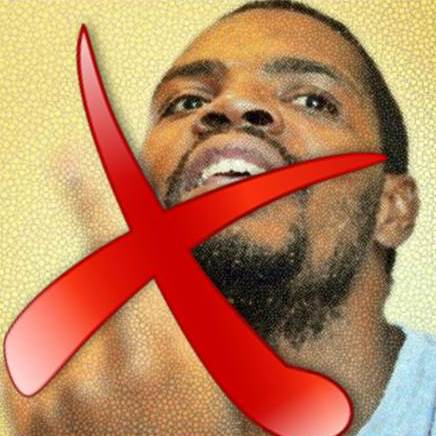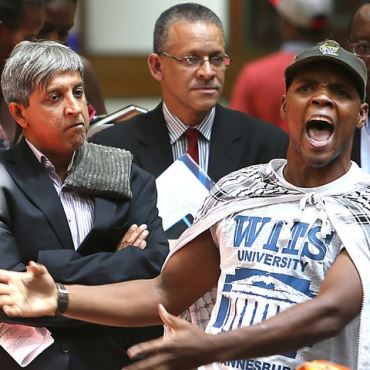Featured Item
Habib could be walking on thin legal ice
On Monday, campus newspaper Wits Vuvuzela ran a story headlined “‘Abnormalities’ in policy for SRC president’s removal” in which they made the case that Dlamini’s removal may have been irregular. Their source: the deputy head at the School of Law at Wits, Mtendeweka Mhango. Read what Mtendeweka Mhango had to say – it seems that the SRC Constitution is a document frought with ambiguities and it will be interesting to see how that plays out between Prof Habib and Dlamini, pictured.

WITS VUVUZELA
The dismissal of Mcebo Dlamini as SRC president was in line with the SRC constitution. However the provision allowing the vice-chancellor to do so is vague and could create an “opportunity for arbitrary used of power” according to a legal expert.
The decision to remove the Mcebo Dlamini as SRC president was in line with the SRC constitution, however there are “abnormalities” in the provision that was used, said the deputy head of the Wits School of Law.
Dlamini was removed from his position on May 4 by Vice Chancellor Adam Habib who said the former SRC president had been found guilty of misconduct before a disciplinary hearing.

RIGHT: Habib is unable to hide his anger as Dlamini lets off steam
“However, it is important to mention that there are a few abnormalities in the above provision, which have been brought to the fore in the current case involving the SRC president and which need to be examined,” he said.
In this case, clause 11(4)(e) of the SRC Constitution was used by the Habib to remove Dlamini. It states that a member of the SRC ceases to be a member if they are found guilty of misconduct by a student disciplinary committee. The member may appeal to the vice-principal or the vice chancellor.
Mhango said, however, the provision is not clear because while it gives power to the vice chancellor it does not describe the legal processes for a SRC member who wishes to appeal. It does not explicitly say what process should be followed when appealing to the vice chancellor or what power the vice chancellor has in granting the appeal.
“This is a problem as it creates opportunity for arbitrary used of power,” said Mhango.
It is also unclear whether the word “appeal” means a request for sympathy to the vice chancellor to not be removed or if it means an application to another person of higher authority for a decision.
The case with Dlamini
Dlamini appeared before a disciplinary panel in February this year where he was found guilty of insulting and assaulting senior members of the university.
In March, Wits Vuvuzela reported that as a result of this verdict, Dlamini was suspended as president. He was allowed to continue studying although he was given a one year suspended sentence of expulsion.
Following the sentence, Dlamini appealed to Habib by asking that his suspension as SRC president be deferred pending the outcome of a review of the disciplinary panel’s decision. Habib agreed, provided the review would be completed in 14 days which did not happen.
Dlamini opposed the delay of the review saying it was the fault of the Wits Legal Office, according to a statement by Habib. Habib said he believes that this delay was partly a result of Dlamini’s inability to provide required documentation to the Legal Office on time.
On the Monday, May 4, two months after Dlamini’s initial suspension, Habib announced that he asked Dlamini to step down as president. He said it appeared as if Dlamini was “deliberately delaying a final decision until the end of his presidential tenure.” This, Habib argued, “would be a violation of the SRC constitution and the principle of justice”.
Habib has denied the former SRC president’s removal was related to his comments in media where he expressed admiration for Adolf Hitler and Dlamini’s claims that every white person had a bit of Hitler in them.
nat cheiman
May 20, 2015 at 5:41 pm
‘Wits has very clever people at the law school. One needs to see these graduates at the coal face in real life to actually appreciate the caliber of education (in law) there.
Even the Judge President, Justice Mojapelo commented on the literacy and in some cases the enumeracy of these graduates (now practicing as advocates).
In any event, it’s something for donors to consider, whether such an institution as Wits should continue to receive donor funding in the light of Dlamini’s comments,.
‘
Denis Solomons
May 22, 2015 at 11:00 am
‘Dlamini is bad news and should not be allowed onto the Wits Campus site again !
He is definitely not needed and not wanted !
Enough said !’